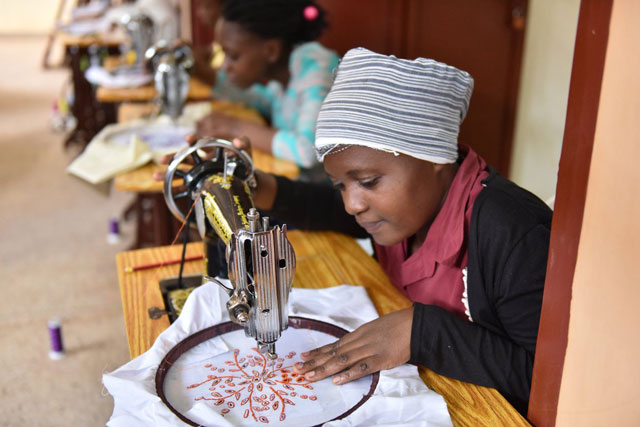
Moroto, Uganda | THE INDEPENDENT | Reformed street children have become community change agents in Moroto district extending social support to other vulnerable groups thanks to life skills imparted to them during their rehabilitation at Alakara Home Foundation.
Up to 29 girls now in upper primary and secondary school have managed to sponsor the education of 43 other disadvantaged children at Kasmeri Primary School and contributed to the construction of three semi-permanent houses to shelter three elderly persons caring for orphans.
They raise money through selling crafts according to Esther Aleper, the manager of Alakara Home Foundation who has overseen the children’s activities in the area.
Lucy Nakong, one of the girls who was neglected and forced into marriage at 12 years says she doesn’t want other children to go through the pain she endured as a neglected child. She said she is happy to be part of the movement helping others to overcome social problems such as child neglect that has forced many Karimojong children to the streets.
Maria Nakiru, another former street child now in senior one makes beads, table cloths costumes and hand-sewn skirts worn as cultural wear among teenagers, skills which she says were provided at no cost as part of their rehabilitation. Nakiru donates part of her earnings to support other vulnerable people especially children.
Aleper explains that the children were picked by the founder Moses Aleper from the areas of Napak, Nakapiripirit, Moroto, and Kotido following soaring cases of child neglect which drove minors to beg on the streets in urban areas. The Foundation first offered psychosocial support and life skills to the girls before they were integrated into formal education.
Uganda has an estimated 10,000 street children, many of whom are from Napak and other districts of Karamoja. This has been attributed to decades of violent conflict, high levels of poverty and food insecurity, according to UNICEF.
*******
URN
 The Independent Uganda: You get the Truth we Pay the Price
The Independent Uganda: You get the Truth we Pay the Price





